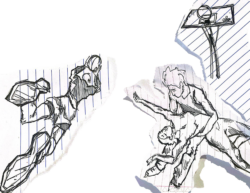Four years ago when David Ortiz was 30 years old, he had one of his greatest seasons ever. His 54 home runs during the 2006 campaign were the most in a single season for the Red Sox. From 2003-2007, there was no hitter more dominant than “Big Papi.” As a die-hard Yankees fan, every time he would step to the plate in a big situation my stomach would drop. When he decided to swing, I’d cringe and hope that he wouldn’t make solid contact and send the ball into the stratosphere.
It seemed as though pitchers lost color in their faces whenever the Dominican slugger was even on deck because there was no easy way to get him out. If you threw it inside, he’d crush it over Pesky’s Pole in right field, and if you tried to sneak an outside fastball by him he’d make you pay by sending it into Vermont over the Green Monster. Some of his home runs still haven’t landed yet.
After leading the Red Sox to multiple World Series titles and capturing the hearts of every member in the Red Sox Nation, Ortiz now finds himself in a very different situation. The once feared slugger is now a shell of his former self. His struggles began last season when he only hit two home runs during the first half of the season. Although he improved his power numbers and finished with 28 dingers, his batting average plummeted to .238 while he struck out 134 times, a career high.
This season has not started much better for Ortiz who is hitting a measly .154 while racking up over twice as many strikeouts as hits. If these stats aren’t enough to paint a depressing picture, anyone who has borne witness to this tragic downfall will tell you that “Big Papi” looks completely lost at the plate. Though he is only 34 years old, his demise has led many to wonder whether Ortiz’s days in Boston are numbered. How can someone who is only 34 and only two years removed from being one of the greatest hitters in the game be finished? Has his weight and lack of athleticism finally caught up with him?
There have been many heavy sluggers who have seen their careers cut short because of sharp declines in physical abilitiy. Former Red Sox great Mo Vaughn was a force at Fenway Park who put up gaudy numbers during his prime. When he turned 35 though, his numbers quickly dropped off and a year later he was no longer a major leaguer. The same went for Detroit Tigers slugger Cecil Fielder. The 240-pound righty saw his home runs dwindle from 39 to 13 as he turned 34, and he retired right after his 35th birthday.
Since this trend of sluggers bottoming out in their mid-30’s is so well-established, there is no reason to believe it won’t continue in the future. This is where it gets interesting. Despite all the buzz about Ortiz’s struggles in the Major Leagues this April, the Philadelphia Phillies decided to give star first basemen Ryan Howard a five-year contract extension worth a total of $125 million. The extension comes on top of Howard’s two year deal, so the 30 year-old Philly will be on the team’s payroll until he is 37, which in slugger years is about 60. When the contract takes effect in two years, Howard will be the second highest paid baseball player per year, behind only Alex Rodriguez.
With Ortiz’s downfall taking place before their very eyes, why are the Phillies giving Howard so much money now? They still have two years before his current contract expires, at which time they can analyze his performance and determine if they should offer him a deal.
Howard is more athletic than Ortiz, but he also weighs 260 pounds, which will hamper him as he gets older. What will they do if Howard’s numbers suddenly cliff dive with three years left on the contract?
Will history repeat itself? For the Phillies, that is the $125 million question.




